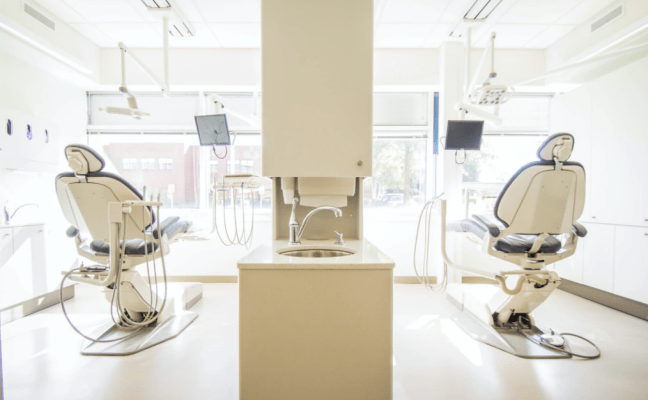Overjet, a startup focused on using AI to help dentists and insurance companies understand dental scans, today announced that it has raised $7.85 million in what it describes as a seed round.
According to Overjet’s CEO Wardah Inam (an MIT PhD in electrical engineering and computer science), the company raised the funds from Crosslink Capital, which led its round, and E14 Fund, which “only invests in MIT startups,” Inam said.
The MIT-E14 connection is not surprising, given that Overjet has been supported by two different MIT groups. Continuing the Boston-area educational links, the startup was incubated by the Harvard Innovation Lab, which Inam told TechCrunch that it is “growing out of” in terms of space.
The selection of Crosslink as its lead investor wasn’t accidental. Inam told TechCrunch that Overjet was interested in raising from Crosslink thanks to its prior investments into Weave, a startup whose software is often used in a dental context. (Weave raised a $70 million Series D at a near-unicorn valuation in 2019, TechCrunch previously reported.)
But enough about the money, let’s talk about what Overjet does.
Applied AI
When you go to the dentist, you’ll often get an x-ray taken of your teeth. Then, a dentist will read the chart and make some recommendations. They may say that you’re in good shape, and can come back for a cleaning in a few months. Or your dentist might tell you that some work is needed. The latter scenario is where Overjet comes into play.
According to Inam, Overjet’s “core technology [helps] to determine what treatments are needed.”
The CEO told TechCrunch in an interview that while most medical imaging AI services are focused on finding out if there is anything wrong (the startup executive gave an example of tumor detection) with someone, Overjet can “go one step further,” helping to not only note that there is a problem (tooth decay, to select a hypothetical), but the extent of the issue itself.
This ability to “analyze clinical data at scale” and “determine what treatments are necessary,” as Overjet’s CEO put it over the phone, is potentially attractive to both dentists and insurance companies alike.
For dentists, it’s the ability to lean on AI-styled technology to help confirm their diagnosis, or help them not miss issues that are hard to spot. Overjet may also be able to help insurance companies process their huge influx of dental images more quickly. Currently, Inam told TechCrunch, “every crown that is sent to any major insurance company is reviewed” manually by humans, something that is expensive.
AI might be able to better tell, and more quickly, if a claim is reasonable, and not fraudulent.
This also helps patients to a degree. Recalling our example of going to the dentist, how much control do you really have over the work that is done to your teeth? Not a lot, frankly. This opens up the chance for dentists to pursue unneeded treatments for financial gain. If Overjet can help root out some fraud in the system, it could lead to better patient care.
Growth
Chatting with a startup it’s hard to grok how good its tech is. In the case of Overjet, it’s nearly impossible. But if the company’s tech works as it thinks it does, it may be able to quickly grow inside its target market; we’ll have to vet the quality of its technology through the lens of business growth for the time being.
Overjet charges insurance companies per claim analyzed, even if it includes more than one x-ray. Dental practices pay on a SaaS model, Inam told TechCrunch.
The company currently has “around 20” people on staff, according to its CEO, and expects to grow this year. I’m super curious how many new customers the startup can gain this year, and how fast it can scale revenue, as well. More when we talk to Overjet again.
